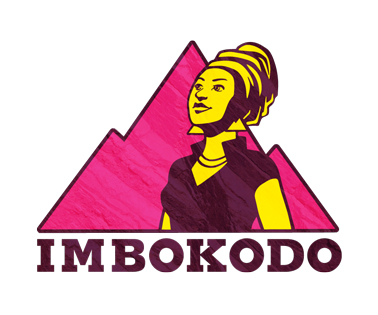September 1, 2021
IAVI statement on results from Phase 2b Imbokodo HIV vaccine clinical trial
Janssen-sponsored trial in sub-Saharan Africa discontinued due to lack of efficacy.

Pharmaceutical company Johnson & Johnson today announced the discontinuation of a Phase 2b HIV vaccine clinical trial known as Imbokodo (HVTN 705/HPX2008), sponsored by Janssen Vaccines & Prevention B.V., part of the Janssen Pharmaceutical Companies of Johnson & Johnson. Data showed the investigational HIV vaccine regimen did not prevent HIV infection in a population of young women in sub-Saharan Africa at high risk of acquiring HIV. Importantly, the investigational vaccine was found to be safe with no serious adverse events among trial participants.
“Though these results are disappointing, IAVI commends Janssen and the study investigators for their commitment to HIV vaccine science and to conducting the Imbokodo trial safely, ethically, and in global collaboration with public and private institutions as well as communities,” said Mark Feinberg, M.D., Ph.D., President and CEO of IAVI. “A safe, effective, broadly accessible HIV vaccine remains an urgent global health priority. Going forward, IAVI and our collaborators believe that the most promising new HIV vaccine approaches are those intended to induce broadly neutralizing antibodies.”
The “holy grail” is an HIV vaccine that induces broadly neutralizing antibodies, or bnAbs, to block HIV’s many strains. Recently, scientists with IAVI and Scripps announced they successfully primed the immune system as the first stage in the production of bnAbs using an engineered immunogen. IAVI, Scripps Research, the Bill & Melinda Gates Foundation, Moderna, and other partners are planning to launch further trials of this candidate. In addition, recent findings of the antibody mediated prevention trial confirm that developing vaccine candidates to elicit bnAbs is a viable strategy that could lead to protection.
The vaccine regimen tested in Imbokodo was based on “mosaic” immunogens — vaccine components designed to induce non-neutralizing immune responses against a wide variety of global HIV strains. The study enrolled 2,637 women ages 18 to 35 years at 23 trial sites across Malawi, Mozambique, South Africa, Zambia, and Zimbabwe. Participants at those sites were vaccinated at four timepoints over one year and were randomized to receive either of the mosaic regimen or placebo. All were counseled about using and accessing HIV prevention options. At month 24, investigators conducted the primary analysis which showed that a total of 63 of 1,109 participants who received placebo acquired HIV compared to 51 of 1,079 participants who received active vaccine.
The vaccine efficacy in this trial was estimated at 25%, a result that is not significantly greater than 0% vaccine efficacy (95% confidence interval -10.5% to 49.3%).
“Women globally bear the greatest burden of HIV, and Imbokodo has shown us that HIV rates among women, particularly in sub-Saharan Africa, continue to be unacceptably high,” said Kundai Chinyenze, M.D. Executive Medical Director, IAVI. “We must continue to pursue an HIV vaccine alongside new and existing methods of prevention that are acceptable to women if we want to turn the tide on the epidemic.”
Analysis of Imbokodo data will continue. In parallel, the ongoing Janssen-sponsored Phase 3 Mosaico study (HVTN 706/HPX3002) will test the safety and efficacy of a similar investigational vaccine regimen among men who have sex with men (MSM) and transgender individuals in the Americas and Europe.
Imbokodo is a public-private partnership involving Janssen, the National Institute of Allergy and Infectious Diseases at the U.S. National Institutes of Health, the Bill & Melinda Gates Foundation, the HIV Vaccine Trials Network, and the U.S. Army Medical Research and Development Command, the Ragon Institute of MGH, MIT and Harvard, and the South African Medical Research Council.